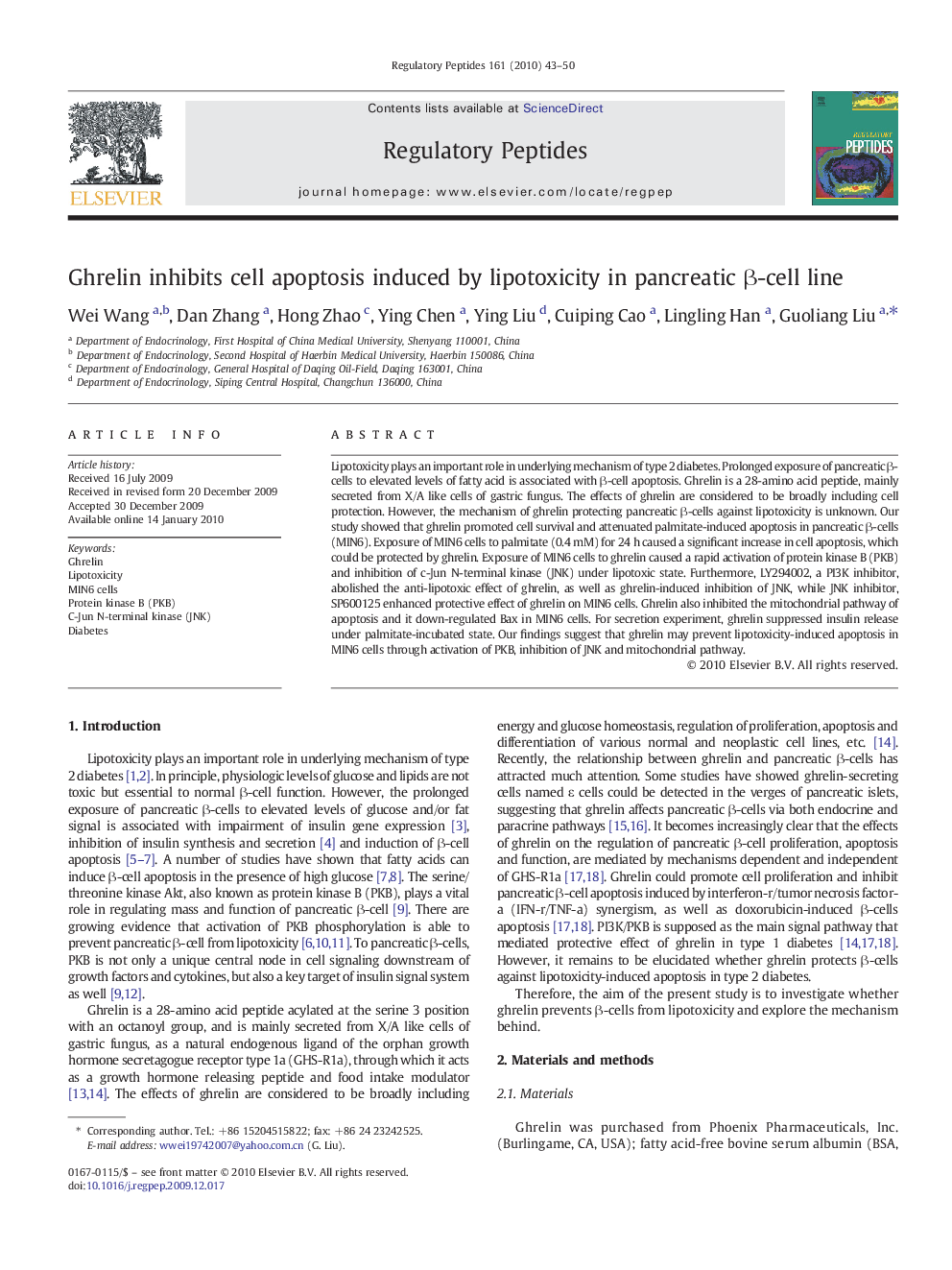| Article ID | Journal | Published Year | Pages | File Type |
|---|---|---|---|---|
| 2022836 | Regulatory Peptides | 2010 | 8 Pages |
Lipotoxicity plays an important role in underlying mechanism of type 2 diabetes. Prolonged exposure of pancreatic β-cells to elevated levels of fatty acid is associated with β-cell apoptosis. Ghrelin is a 28-amino acid peptide, mainly secreted from X/A like cells of gastric fungus. The effects of ghrelin are considered to be broadly including cell protection. However, the mechanism of ghrelin protecting pancreatic β-cells against lipotoxicity is unknown. Our study showed that ghrelin promoted cell survival and attenuated palmitate-induced apoptosis in pancreatic β-cells (MIN6). Exposure of MIN6 cells to palmitate (0.4 mM) for 24 h caused a significant increase in cell apoptosis, which could be protected by ghrelin. Exposure of MIN6 cells to ghrelin caused a rapid activation of protein kinase B (PKB) and inhibition of c-Jun N-terminal kinase (JNK) under lipotoxic state. Furthermore, LY294002, a PI3K inhibitor, abolished the anti-lipotoxic effect of ghrelin, as well as ghrelin-induced inhibition of JNK, while JNK inhibitor, SP600125 enhanced protective effect of ghrelin on MIN6 cells. Ghrelin also inhibited the mitochondrial pathway of apoptosis and it down-regulated Bax in MIN6 cells. For secretion experiment, ghrelin suppressed insulin release under palmitate-incubated state. Our findings suggest that ghrelin may prevent lipotoxicity-induced apoptosis in MIN6 cells through activation of PKB, inhibition of JNK and mitochondrial pathway.
